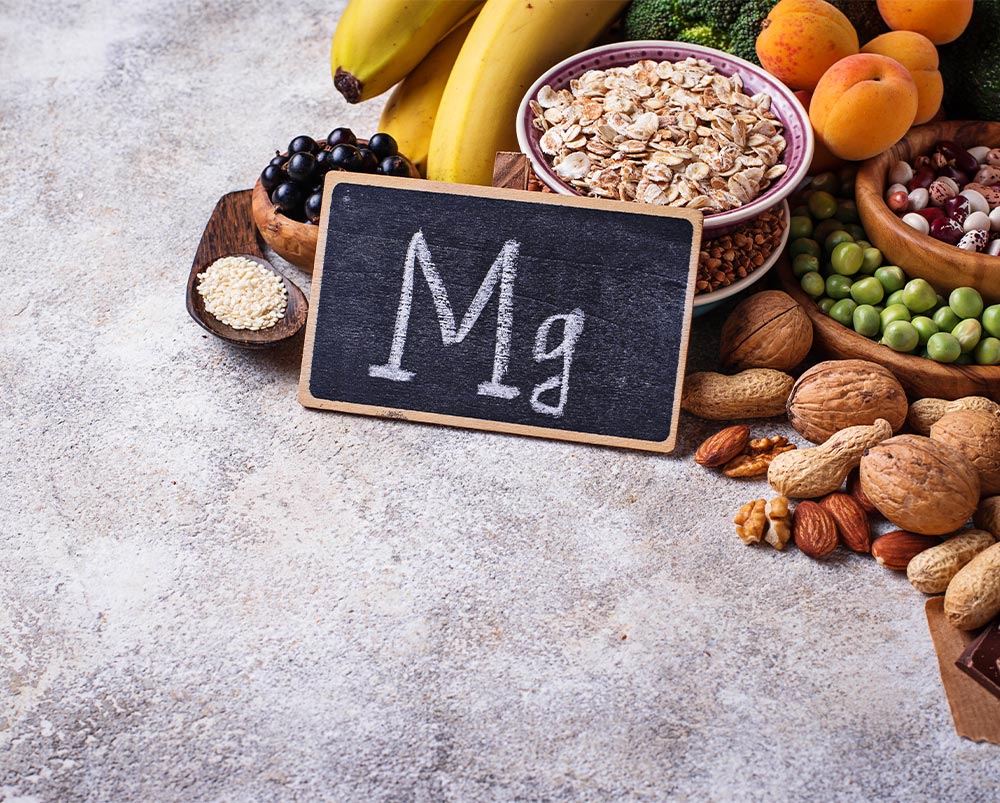Are you struggling with high blood pressure? Do you want to take control of your health and lower it naturally? You're not alone. High blood pressure is a common problem that affects millions of people worldwide. But the good news is that there are natural ways to control it, including supplements. In this post, we'll dive deep into understanding blood pressure, identifying high blood pressure, and the causes behind it. We'll also talk about the role of supplements in controlling blood pressure and highlight some of the most effective ones like NMN, Berberine, Lion's Main, Glutathione, and Quercetin. By the end of this post, you'll have a better understanding of how these supplements work and how long it takes for them to show results. So let's get started on your journey towards a healthier you!
Understanding Blood Pressure
Understanding blood pressure is crucial for maintaining overall health. It measures the force of blood against artery walls, and hypertension refers to high blood pressure. If left unmanaged, high blood pressure can lead to serious health conditions, including hypertensive crisis. That's why regular monitoring of blood pressure levels is important. By understanding your blood pressure readings, you can take necessary steps to lower it and reduce the risk of heart attack, heart failure, and kidney failure. Stay informed about the types of high blood pressure and consult with healthcare professionals to ensure effective management.
Defining Blood Pressure
Blood pressure is the force exerted by circulating blood on the walls of blood vessels, measured in millimeters of mercury (mmHg). It consists of two numbers: systolic and diastolic. Systolic pressure represents the force when the heart beats, while diastolic pressure represents the force when the heart is at rest. Understanding these numbers is crucial for monitoring your cardiovascular health. By knowing your blood pressure readings, you can take proactive steps to manage it effectively and reduce the risk of heart attacks, heart failure, and other complications associated with high blood pressure.

Blood Pressure Measurement and Ranges
Blood pressure is typically measured using a cuff and a sphygmomanometer. Normal blood pressure usually falls around 120/80 mmHg. Prehypertension is classified as blood pressure ranging from 120-139/80-89 mmHg. Hypertension stage 1, also known as primary hypertension, is defined by blood pressure ranging from 140-159/90-99 mmHg, while hypertension stage 2 is indicated by a blood pressure of 160/100 mmHg or higher. These measurements help in the diagnosis of high blood pressure and assess the risk of developing related health conditions.
Normal and Low Blood Pressure for Men and Women by Age
Normal blood pressure ranges can vary depending on age and gender. As we age, blood pressure tends to increase. The American Heart Association provides guidelines for what is considered normal blood pressure based on age and gender. It's important to note that these ranges are general guidelines and can vary for individuals based on their overall health and medical history. By understanding the normal blood pressure ranges for your age and gender, you can better monitor and manage your cardiovascular health, including through the services provided by the NHS.
Identifying High Blood Pressure
High blood pressure, also known as the "silent killer," often shows no symptoms until it reaches a severe or life-threatening stage. Regular blood pressure screenings are crucial for identifying and managing hypertension and metabolic syndrome, which are important aspects of health care. It increases the risk of heart disease, stroke, and other serious health problems. Lifestyle modifications play a key role in controlling and lowering high blood pressure. By adopting healthy habits, such as exercising regularly, maintaining a balanced diet, and limiting alcohol consumption, you can effectively manage your blood pressure and reduce the risk of complications.

Symptoms of High Blood Pressure
It's important to note that high blood pressure often doesn't present noticeable symptoms. However, in severe cases, individuals may experience headaches, shortness of breath, and nosebleeds. It's crucial to be aware that fatigue, confusion, and chest pain could indicate complications related to high blood pressure. Regular monitoring of blood pressure levels is vital for early detection and prevention of potential health problems. By keeping an eye on your blood pressure, you can take proactive steps to manage and maintain optimal cardiovascular health. Additionally, it's recommended to keep a record of your blood pressure readings in a pdf format for easy access and sharing with your healthcare provider.
Systolic and Diastolic Blood Pressure in Hypertension
In hypertension, systolic blood pressure measures the force exerted by the heart when it beats, while diastolic blood pressure measures the force when the heart is at rest. Both readings, including the bottom number, are crucial for diagnosing and managing hypertension. Consistently exceeding the normal range is indicative of hypertension. Understanding the relationship between these two types of blood pressure helps healthcare professionals in assessing the severity of the condition and developing an appropriate treatment plan. By monitoring both systolic and diastolic blood pressure, healthcare providers can effectively manage hypertension and reduce the risk of complications.
Causes of High Blood Pressure
Various factors can contribute to high blood pressure. Risk factors include obesity, smoking, and a sedentary lifestyle. Genetics and family history also play a role. Health conditions like kidney disease and diabetes can increase the risk of hypertension. Identifying and addressing these underlying causes is crucial for managing and controlling high blood pressure. By understanding the factors that contribute to hypertension, we can take proactive steps to reduce our risk and maintain optimal health.

What Triggers High Blood Pressure?
Factors such as stress, a high sodium, low potassium diet, excessive consumption of much alcohol, tobacco use, lack of physical activity, and poor sleep habits can trigger high blood pressure. Angiotensin, a hormone that constricts blood vessels, can also contribute to high blood pressure.
The Role of Supplements in Controlling Blood Pressure
Supplements like garlic extract and fish oil have been studied for their potential in lowering blood pressure. Ongoing research is being conducted to determine their effectiveness in controlling blood pressure. These supplements offer a natural alternative for individuals looking to manage their blood pressure levels. By incorporating these supplements into their daily routine, individuals may potentially see improvements in their blood pressure readings. It is important to consult with a healthcare professional before starting any supplement regimen to ensure safety and effectiveness.
The Effect of NMN on Blood Pressure
NMN supplement UK has shown promising potential in lowering high blood pressure, and it may be the only way to maintain optimal blood pressure without relying solely on traditional medications such as diuretics or calcium channel blockers. Studies indicate that NMN can improve blood flow, reduce arterial stiffness, and promote the dilation of blood vessels. By incorporating NMN into your supplement routine, you may be able to support healthy blood pressure levels and reduce the risk of cardiovascular diseases associated with hypertension. This natural approach offers a way to maintain optimal blood pressure without relying solely on traditional medications such as diuretics or calcium channel blockers. With its positive effects on blood pressure, NMN can be a valuable addition to your overall health regimen.

Berberine's Role in Lowering Blood Pressure
Berberine UK has demonstrated promising effects in reducing high blood pressure, potentially by relaxing blood vessels and improving blood flow. Including berberine supplements in your daily routine may help manage hypertension. Additionally, berberine's ability to decrease inflammation and oxidative stress could contribute to its blood pressure-lowering effects. By incorporating berberine into your regimen, you may be taking a natural approach towards maintaining optimal blood pressure. It's exciting to see the potential of berberine in supporting cardiovascular health and managing hypertension.
Lion's Main - A Natural Solution for Hypertension
Lion's Mane mushroom extract offers potential benefits for managing hypertension. It can help lower blood pressure by promoting the production of nitric oxide, which relaxes blood vessels. Incorporating Lion's Mane supplements into your routine may support and maintain healthy blood pressure levels. Additionally, the antioxidant properties of Lion's Mane can help protect against oxidative stress-induced damage to blood vessels. With its natural and holistic approach, Lion's Mane provides a promising solution for individuals looking to manage their blood pressure effectively.
Glutathione - The Master Antioxidant's Impact on Blood Pressure
Glutathione supplement, the master antioxidant, may have a significant impact on blood pressure regulation. Studies suggest that this powerful antioxidant plays a role in protecting blood vessel health and reducing oxidative stress, which can contribute to healthier blood pressure levels. Supplementing with glutathione could potentially support overall cardiovascular health and aid in managing blood pressure. It is important to remember that a holistic approach, including lifestyle changes, is crucial in managing high blood pressure effectively. Embracing the potential benefits of glutathione as part of a comprehensive strategy can lead to better blood pressure management.

How Does Quercetin Contribute to Blood Pressure Management?
Quercetin UK is a flavonoid that can be found in several fruits and vegetables. It has been shown to lower blood pressure by relaxing blood vessels and improving blood flow. Including quercetin-rich foods or supplements in your diet can help manage hypertension and reduce the risk of cardiovascular damage. Some of the best sources of quercetin include berries, citrus fruits, onions, apples, grapes, parsley, tea, and red wine. Quercetin supplements are also available in capsule form.
How Long Does It Take for Supplements to Lower Blood Pressure?
The time it takes for supplements to lower blood pressure can vary based on various factors. It's important to remember that immediate results may not be achieved solely through supplements. Consistency in taking supplements and making other lifestyle changes is crucial for long-term blood pressure management. Individual responses vary, so noticeable improvements may take weeks or even months.
Monitoring Your Blood Pressure While Taking Supplements
Monitoring your blood pressure is vital when incorporating supplements into your blood pressure management routine. Using home blood pressure monitors allows you to track changes in your blood pressure over time. Make sure to keep a record of your readings and share them with your healthcare provider for evaluation. This helps assess the effectiveness of the supplements and make any necessary adjustments to your treatment plan. Regular monitoring empowers you to take control of your health and achieve optimal blood pressure levels.

Frequently Asked Questions
What is ideal blood pressure by age?
For adults over 18, healthy blood pressure is typically below 120/80 mmHg. As you age, your ideal blood pressure may increase slightly. Remember to monitor and manage your blood pressure to maintain good cardiovascular health.
Is medication necessary for everyone with high blood pressure, or are there alternative treatments available?
Medication isn't always necessary for high blood pressure. Lifestyle changes like diet and exercise can help. Additionally, supplements like potassium, NMN, and Berberine may be effective in lowering blood pressure.
How often should you have your blood pressure checked, and at what age should you start monitoring it regularly?
Regular monitoring of blood pressure is crucial for maintaining good health. For most adults, it is recommended to have their blood pressure checked at least once a year. However, if you have high blood pressure or other risk factors, more frequent monitoring may be necessary. It's important to start regularly monitoring your blood pressure from the age of 18 onwards to detect and manage any potential issues early on.
What lifestyle changes can you make to lower your blood pressure?
Choose a healthy diet low in salt, engage in regular physical activity like brisk walking or swimming, quit smoking and limit alcohol consumption, and manage stress through techniques like meditation or yoga.
Is 140 over 70 a good blood pressure?
A blood pressure reading of 140 over 70 is considered high, indicating hypertension. The ideal blood pressure is below 120 over 80. Monitoring and managing blood pressure is essential for overall health and well-being.
References:
Hypertension Across a Woman’s Life Cycle
Role of natural herbs in the treatment of hypertension
Shaking the Salt Habit to Lower High Blood Pressure
https://order.store.mayoclinic.com/flex/mmv/hpbhc01/
https://www.cdc.gov/physicalactivity/basics/adults/index.htm





Leave a comment (all fields required)